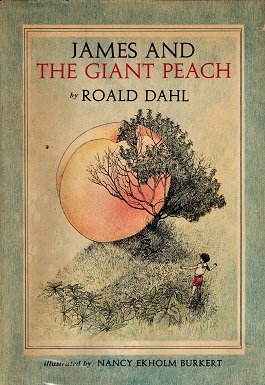Roger Martin du Gard
Explore the life and achievements of Roger Martin du Gard through a detailed timeline. Discover key events, from his birth and literary career to winning the Nobel Prize in Literature in 1937. Learn about his works and legacy in the world of literature.
Birth of Roger Martin du Gard
Roger Martin du Gard was born on March 23, 1881, in Neuilly-sur-Seine, France. He was born into a well-off bourgeois family. The influence of his early life experiences and education shaped his later works profoundly. Martin du Gard would go on to become a prominent French novelist and playwright, best known for his series of novels 'Les Thibault'. He was an author who keenly explored the moral and social complexities of the early 20th-century life.
Publication of Devenir!
In 1913, Roger Martin du Gard published his first novel titled "Devenir!" (To Become!), marking his entry into the world of literature. This novel, which follows the life of a young man with aspirations of greatness, is told through a series of letters and is noted for its exploration of the individual's struggles against societal expectations. It set the stage for Martin du Gard's later exploration of similar themes in his subsequent, more celebrated works.
Writing of Les Thibault Begins
In 1919, Roger Martin du Gard began working on his epic series 'Les Thibault'. Spanning several volumes, this series explores the interactions and inner lives of members of a bourgeois Parisian family. The narrative delves into themes of faith, family duty, and the political and social upheavals of early 20th-century Europe, particularly during World War I. This ambitious project cemented Martin du Gard's reputation as a leading literary figure in France.
Publication of Jean Barois
In 1920, Roger Martin du Gard published 'Jean Barois', a novel that stands as one of his significant early works. This novel tells the story of a man's crisis of faith following the Dreyfus Affair, blending historical events with intricate character development. It is considered a precursor in thematic style to the more comprehensive narrative explored in 'Les Thibault', and it reflects Martin du Gard's skillful engagement with complex moral and social issues.
Publication of La Belle Saison
In 1929, Roger Martin du Gard published 'La Belle Saison', the third book in his 'Les Thibault' series. This novel, which continues the story of the Thibault family, delves into the emotional and existential developments of its characters as they navigate the complexities of early 20th-century French society. The book is praised for its depth and fidelity in portraying the nuances of personal and social change during this period.
Nobel Prize in Literature Awarded
On October 21, 1937, Roger Martin du Gard was awarded the Nobel Prize in Literature for "the artistic power and truth with which he has depicted human conflict in the series of novels 'Les Thibault'." This work is a reflection on the complexities of family life set against the backdrop of the turbulent early 20th century. The award recognized his literary mastery and his contribution to modern French literature, underscoring the profound depth and psychological insight of his narrative.
Publication of Summer 1914
In 1941, Roger Martin du Gard published the novel 'Summer 1914', the sixth volume in his celebrated series 'Les Thibault'. This installment particularly focuses on the events leading up to World War I, capturing the tensions and atmosphere of the time. Martin du Gard meticulously crafted a portrayal of the European socio-political landscape just before the outbreak of the war, providing readers with an insightful historical perspective marked by his nuanced character studies.
Awarded the French Legion of Honour
In 1946, Roger Martin du Gard was awarded the French Legion of Honour, one of the highest decorations in France, in recognition of his outstanding contributions to French literature. This honor reflects the high esteem in which he was held by the French public and government, acknowledging his significant cultural impact and his literary achievements that captured the spirit and conflicts of his time.
Publication of Lieutenant-Colonel de Maumort
In 1948, 'Lieutenant-Colonel de Maumort', an unfinished novel by Roger Martin du Gard, was published posthumously. The novel, which he worked on for years, is a deeply introspective piece where the title character reflects on his life during critical historical moments. Although incomplete, the novel offers profound insights into Martin du Gard's artistic vision and his continuous quest to examine the broader human experience through fiction.
Death of Roger Martin du Gard
Roger Martin du Gard passed away on August 22, 1958, in Sérigny, France. He left behind a literary legacy that includes not only his Nobel Prize-winning series 'Les Thibault', but also his autobiographical and diverse works. His death marked the loss of one of France's eminent literary figures of the 20th century, whose works continued to influence and inspire future generations of writers and intellectuals.
Frequently asked questions about Roger Martin du Gard
Discover commonly asked questions regarding Roger Martin du Gard. If there are any questions we may have overlooked, please let us know.
What is Roger Martin du Gard known for?
When was Roger Martin du Gard born?
What other significant works did Roger Martin du Gard write?
When did Roger Martin du Gard die?
Related timelines
More timelines connected to Roger Martin du Gard







